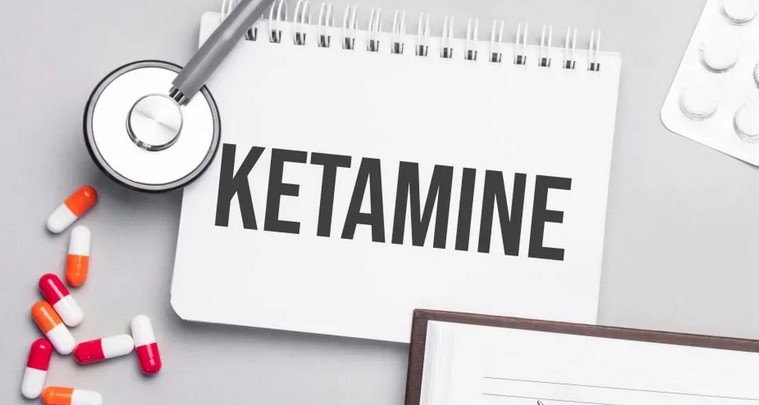This blog was originally published on November 20, 2022. It has been updated to include the most recent information and research.
Ketamine, initially used as an anesthetic, has groundbreaking promise in treating severe anxiety. Its unique effect on individual brain neurons – one that can lead to pervasive and profound changes in the brain’s neural network function – offers hope, as it could be a solution for those struggling with anxiety disorders.
Overcoming treatment resistance
Many patients suffering from anxiety or depression, or both, are resistant to conventional treatment. Medications that work for others have little effect on treatment resistant patients. For those with generalized anxiety disorder (GAD), as many as 50% can’t be helped with traditional anxiety treatments.
Ketamine increases the activity of glutamate, a chemical messenger used by the brain for regulating mood as well as for learning and memory. Unlike ketamine, other anti-anxiety drugs primarily influence neurotransmitters like serotonin. Since resistance to these medications is a major challenge, it’s promising that ketamine provides a new biochemical approach to anxiety treatment.
Glutamate also supports neuroplasticity, the brain’s ability to adapt and change with every new experience. This is why scientists think ketamine may help “rewire” the brain, disrupting harmful thought patterns and allowing the formation of new pathways that can foster more positive thoughts. That’s why ketamine therapy for anxiety may finally promise relief for patients with resistance to conventional medication.
Rapid and Effective Relief
One of the most remarkable aspects of using ketamine treatment for anxiety is its ability to provide rapid relief. Unlike traditional anti-anxiety medications, which can take between two and six weeks to show results, ketamine can alleviate symptoms in as little as two hours. For those struggling with severe bouts of anxiety, this can be a lifesaver.
Generalized and Social Anxiety: Effective Treatment
Weekly ketamine treatments have been evaluated for their safety and effectiveness in treating GAD and social anxiety disorder. Studies found that patients reported rapid reductions in anxiety that lasted up to seven days after treatment. However, the integration of psychotherapy with the treatment has been proven to extend the duration of these effects.
Phobias and OCD: Ketamine’s Potential to Provide Relief
Researchers continue to explore ketamine’s effectiveness across various mental health conditions, including anxiety disorders such as phobias and Obsessive-Compulsive Disorder (OCD):
- Phobias: A study from 2021 indicated that ketamine may be effective in reducing symptoms of agoraphobia (fear of open or crowded spaces), social phobia (fear of being judged in social situations) and blood injury phobia (fear of blood or injuries).
- OCD: Trials have found that ketamine IV treatment can rapidly reduce OCD symptoms, though these effects are typically short-lived. Here, too, combining ketamine therapy with psychotherapy is being explored to produce longer-lasting symptom reduction.
PTSD: Increasing Evidence Ketamine Can Help
In Post-Traumatic Stress Disorder (PTSD), there is increasing evidence supporting the role of the glutamate in stress responsiveness, the formation of traumatic memories, and overall PTSD. This raises the possibility of using ketamine to treat it.
Several studies have highlighted ketamine’s potential in treating PTSD:
- One study demonstrated that ketamine infusions rapidly and significantly reduce symptom severity in PTSD patients.
- Research has suggested that ketamine may target mechanisms involved in the consolidation of traumatic memories, enabling the brain to reconsolidate and release trauma.
- A case study reported that a child with PTSD experienced remission from behavioral dysregulation after receiving procedural ketamine.
Bipolar Depression: An Added Benefit
In patients with bipolar depression, ketamine has shown significant antidepressant responses for both anxious and non-anxious patients, underscoring ketamine’s versatile therapeutic potential.
Ketamine Treatment Types
There are several ways to administer ketamine, each suited to different needs and circumstances. The most common are:
- Intravenous (IV) Ketamine Infusions: This method involves a slow, constant IV drip of ketamine delivered directly into your bloodstream. It is typically done in a hospital or clinic setting.
- Nasal Spray (Spravato): The nasal spray is FDA approved for treatment resistant depression and is administered at a doctor’s office where you are monitored for any side effects. Initially, you use the spray twice weekly for the first eight weeks, then once every week or two during the maintenance phase. Using Spravato for depression can have rapid effects and sometimes, it’s also prescribed in combination with traditional anti-depressant medication. It is FDA-approved, so can be covered by insurance.
The Future of Anxiety Treatment and Ketamine
Scientists are still unraveling exactly how ketamine reduces anxiety and depression. However, it is clear that while traditional antidepressants take weeks to alleviate symptoms, ketamine begins to work immediately and may provide symptom relief where other treatments have failed.
With ongoing research and increasing evidence supporting its use, ketamine offers new hope for those suffering from various anxiety disorders.
Get in touch with us for a free consultation about ketamine for anxiety treatment!



